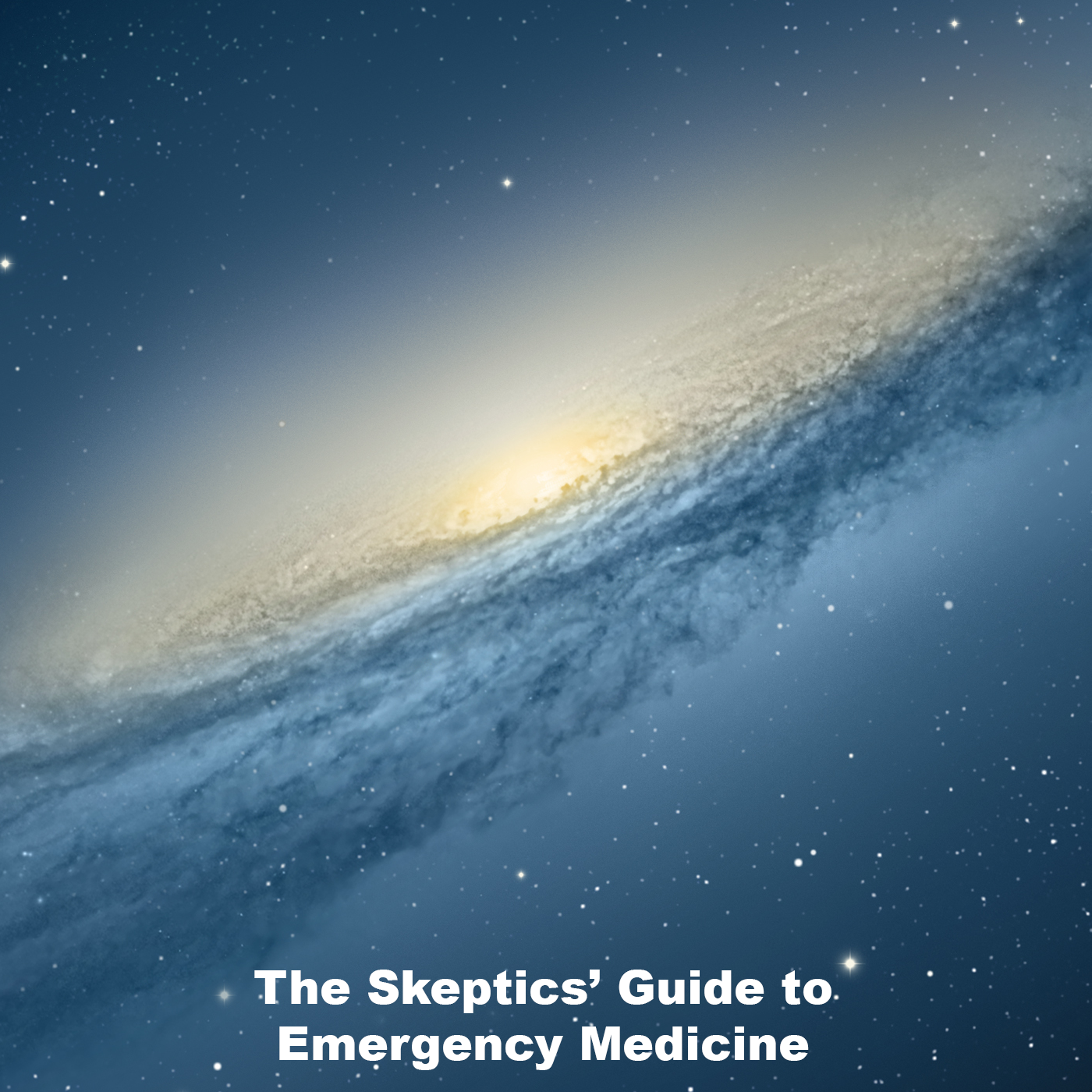SGEM#380: OHCAs Happen and You’re Head Over Heels – Head Elevated During CPR?
- Author
- Dr. Ken Milne
- Published
- Sat 22 Oct 2022
- Episode Link
- https://thesgem.com/2022/10/sgem380-ochas-happen-and-youre-head-over-heels-head-elevated-during-cpr/
Date: October 18th, 2022
Reference: Moore et al. Head and thorax elevation during cardiopulmonary resuscitation using circulatory adjuncts is associated with improved survival. Resuscitation 2022
Guest Skeptic: Clay Odell is a Paramedic, Firefighter, and registered nurse (RN).
Case: You are the Chief of your local Fire and EMS Department, and an individual contacts you saying he saw a piece on TV about a “Heads Up” CPR device, and he wants to donate half the cost and has his checkbook out.
Background: We have covered Out of Hospital Cardiac Arrests (OHCAs) many, many times on the SGEM. This includes epinephrine for OHCA, target temperature management, mechanical CPR, supraglottic airways, steroids, hands on defibrillation and many more topics.
SGEM#50: Under Pressure Journal Club: Vasopressin, Steroids and Epinephrine in Cardiac Arrest
SGEM#54: Baby It’s Cold Outside: Pre-hospital Therapeutic Hypothermia in Out of Hospital Cardiac Arrest
SGEM#59: Can I Get a Witness: Family Members Present During CPR
SGEM#64: Classic EM Paper: OPALS Study
SGEM#107: Can’t Touch This: Hands on Defibrillation
SGEM#136: CPR – Man or Machine?
SGEM#143: Call Me Maybe for Bystander CPR
SGEM#152: Movin’ on Up – Higher Floors, Lower Survival for OHCA
SGEM#162: Not Stayin’ Alive More Often with Amiodarone or Lidocaine in OHCA
SGEM#189: Bring Me To Life in OHCA
SGEM#238: The Epi Don’t Work for OHCA
SGEM#247: Supraglottic Airways Gonna Save You for an OHCA?
SGEM#275: 10th Avenue Freeze Out - Therapeutic Hypothermia after Non-Shockable Cardiac Arrest
SGEM#306: Fire Brigade and the Staying Alive APP for OHCAs in Paris
SGEM#314: OHCA – Should you Take ‘em on the Run Baby if you Don’t get ROSC?
SGEM#329: Will Corticosteroids Help if...I Will Survive a Cardiac Arrest?
SGEM#336: You Can’t Always Get What You Want – TTM2 Trial
SGEM#344: We Will...We Will Cath You – But should We After An OHCA Without ST Elevations?
SGEM#353: At the COCA, COCA for OHCA
Overall, the success rate of resuscitation of out of hospital cardiac arrest – or OHCA’s – is pretty dismal and efforts to improve resuscitation rates are absolutely vital. Animal research has suggested that elevating the head during CPR improves success rates. The proposed physiology includes decreased intracranial pressure and improved return of venous blood from the head and neck to the thorax.
Pathophysiology has been used to justify practice many times in medicine. There are examples of medical reversal when properly conducted studies are performed to confirm the hypotheses. The time to accept a claim is when there is sufficient evidence.
This study is an attempt to confirm (or refute) the pathophysiology and the animal research into human subjects.
Clinical Question: Does the rapid use of an automated head up device as part of a CPR bundle improve survival from OHCA?
Reference: Moore et al. Head and thorax elevation during cardiopulmonary resuscitation using circulatory adjuncts is associated with improved survival. Resuscitation 2022
Population: Adults 18 years of age and older with OHCA (ventricular fibrillation [VF] or ventricular tachycardia [VT], pulseless electrical activity [PEA], or asystole; routine and consistent treatment with ACE-CPR within the participating pre-hospital system; and routine and consistent recording of the 911 call receipt to placement of the APPD [automated controlled head and thorax patient positioning device] time interval.
Excluded: Children, prisoners, women known to be pregnant, patients >175kg and patients without documentation of 911 call to start of EMS CPR time interval.
Intervention: Automated controlled elevation of the head and thorax CPR (ACE-CPR) with an impedance threshold device (ITD) and active compression decompression (ACD-CPR) or LUCAS manual compression device
Comparison: Conventional CPR (C-CPR) with or without ITD
Outcome:
